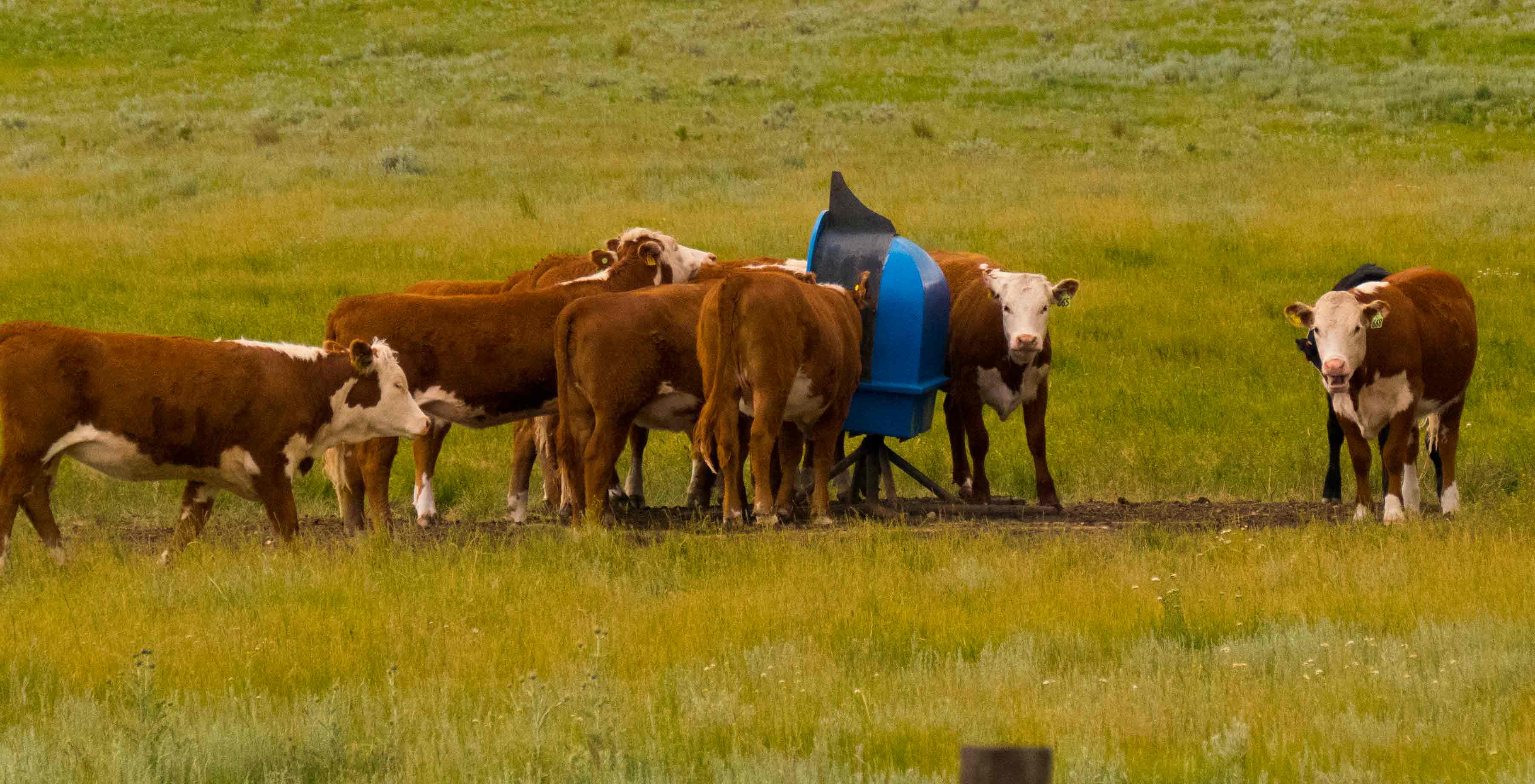Scammers exploiting dire cattle feed situation in Alberta, says head of beef producers group

Due to last summer’s drought and winter’s supply chain issues, cattle feed is still hard to come by in Alberta — and what’s available comes at a cost
That’s leading to a surge in scams, thefts and bad cheques related to hay and grain feed.
Cpl. Lindsey Anderson is with the Alberta RCMP livestock investigation unit, a two-person team that covers all livestock crimes across the province. She says crimes against ranchers have become more common.
“A lot of times we deal with — we call them bad cheques — where people write cheques knowing that there’s no money in that bank account,” Anderson said.
“It’s just a sad state with everything that’s going on right now. People are desperate“– Melanie Wowk, Chair of the Alberta Beef Producers
She says some Albertans have lost upward of $50,000 after being given fraudulent cheques for cattle feed.
Anderson says she’s also seen money paid for feed that is never received, and an increased number of hay bale thefts.
“Unfortunately, we run into a lot of situations where you do the neighbourly thing, or a handshake agreement,” she said.
The chair of the Alberta Beef Producers, Melanie Wowk, says she’s warned the group’s members about an increased number of scams.
“They’ve caught wind that we need feed, that we’re willing to pay for it quickly. And the money’s good,” she said.
“It’s just a sad state with everything that’s going on right now. People are desperate.”
Last summer’s extreme drought in Western Canada caused domestic supplies of hay and other feed grains to dwindle, prompting cattle producers to resort to importing large quantities of corn from the United States to get their animals through the winter.
However, the winter’s extreme cold weather, COVID-19-related labour challenges and other supply chain issues disrupted rail transport and delayed feed shipments.
“The feed just isn’t out there, there’s nowhere to buy it,” Wowk said. “If you are lucky enough to find it, the pricing is crazy.”
She says increased crime has led to a loss of trust within the industry.
“There was always a feeling of trust amongst people in the ag sector,” she said, adding that her husband has done deals in the past on a handshake agreement.
“Now there’s no way, you’ve got to protect yourself.”
Last month, Montana Attorney General Austin Knudsen warned ranchers about scams that could be impacting them, with one linked to an Alberta company.
‘Too good to be true’
Anderson says ranchers should be aware that if an offer for hay “looks too good to be true, it probably is.”
If you’re making a deal to buy or sell a product, get the deal in writing, and collect as much information from the person as possible, like a licence plate number, she says.
She tells people to make sure they have hay bales or other products in their possession before handing over money, and mark bales with coloured twine so they’re easily recognizable in the event they get stolen.
“A lot of the time, unfortunately, the victims don’t have enough evidence to lay a charge … along with that comes a lot of time and stress.”












